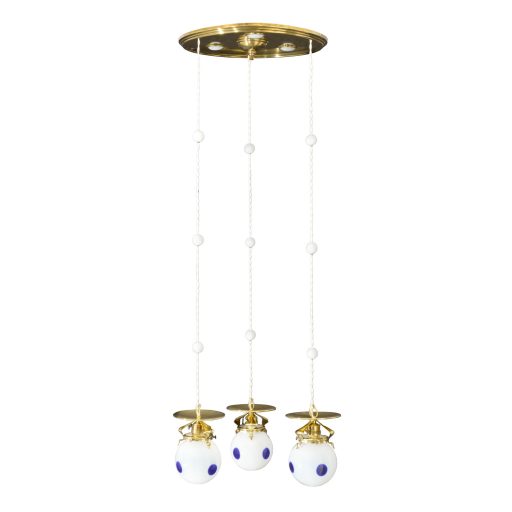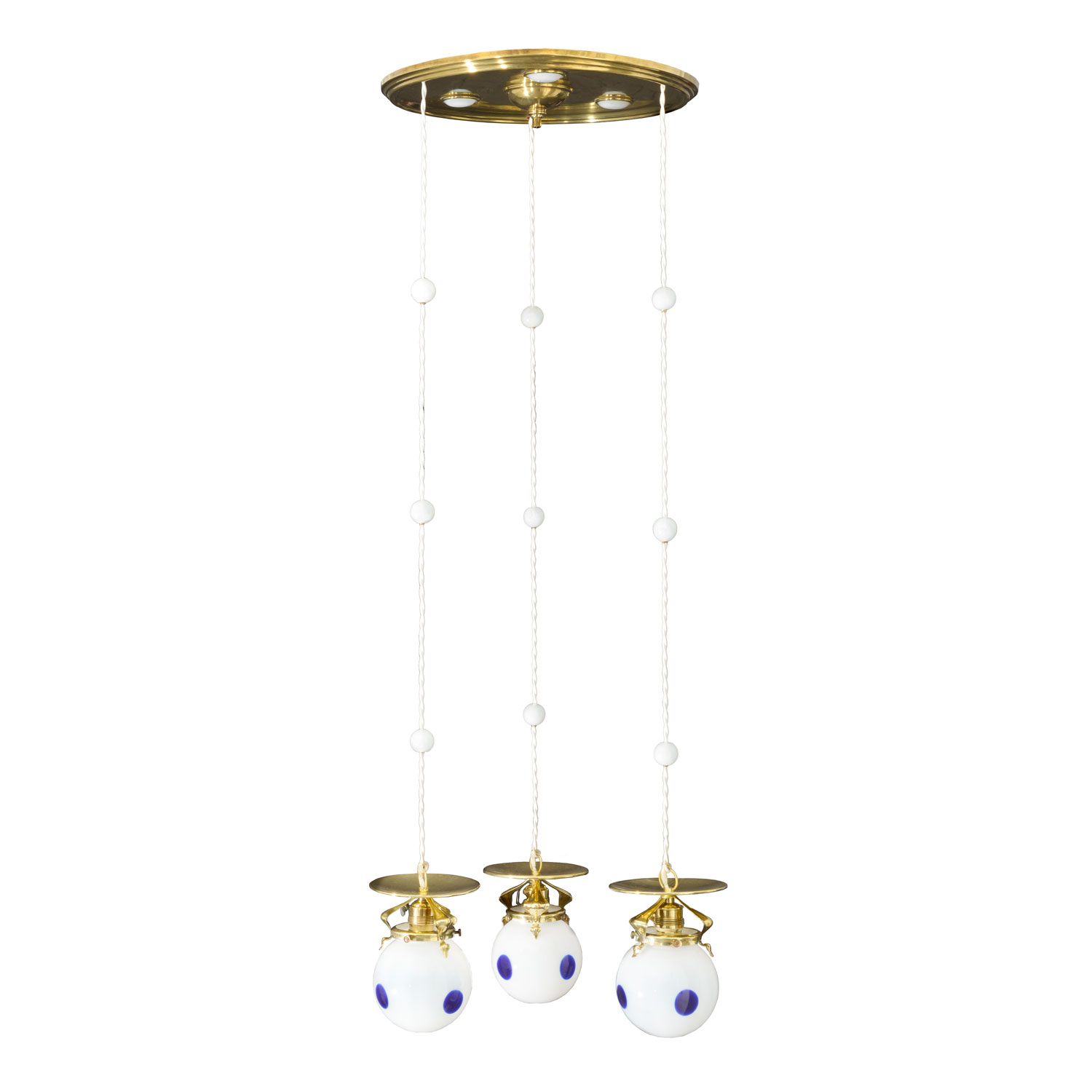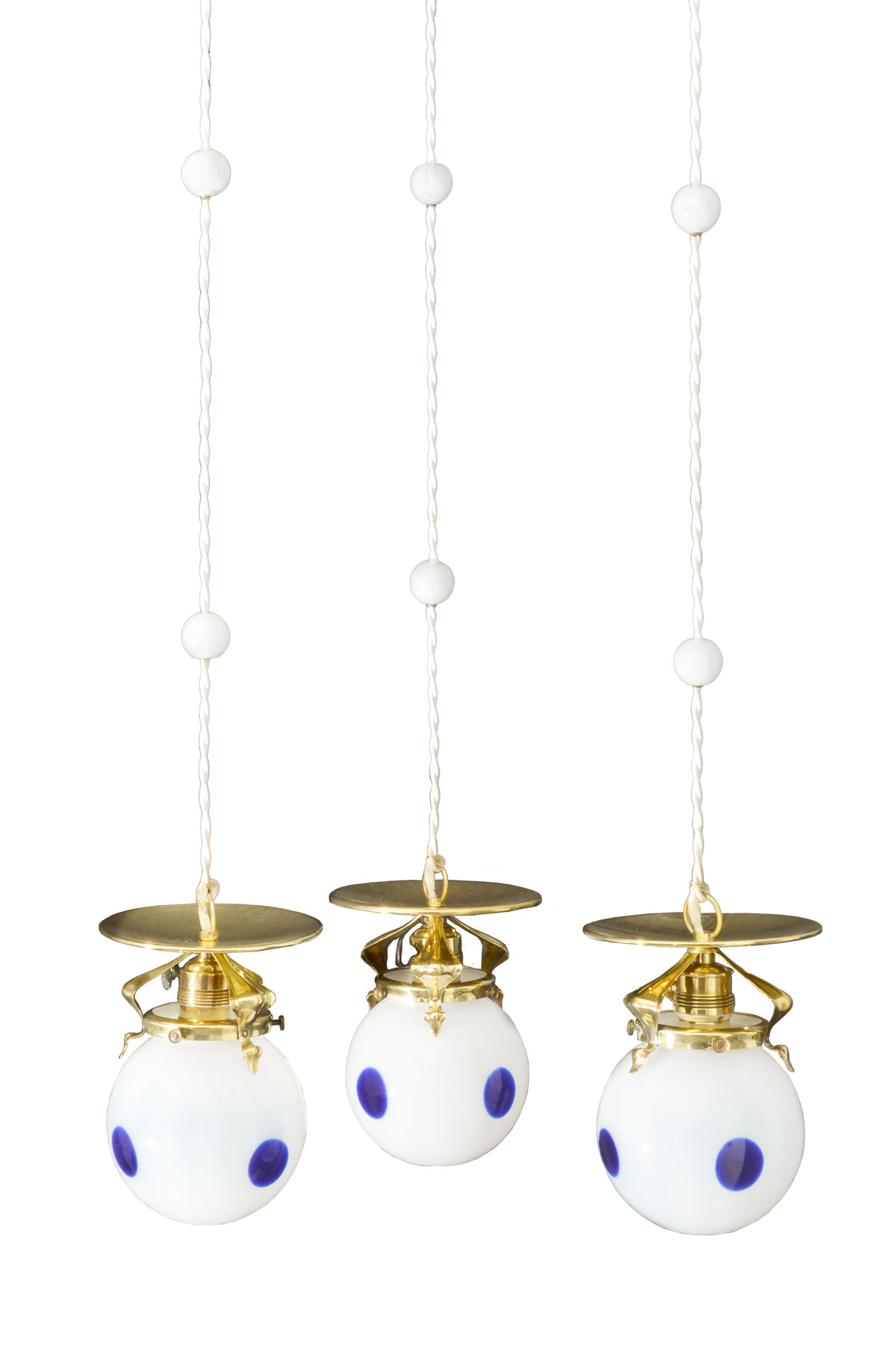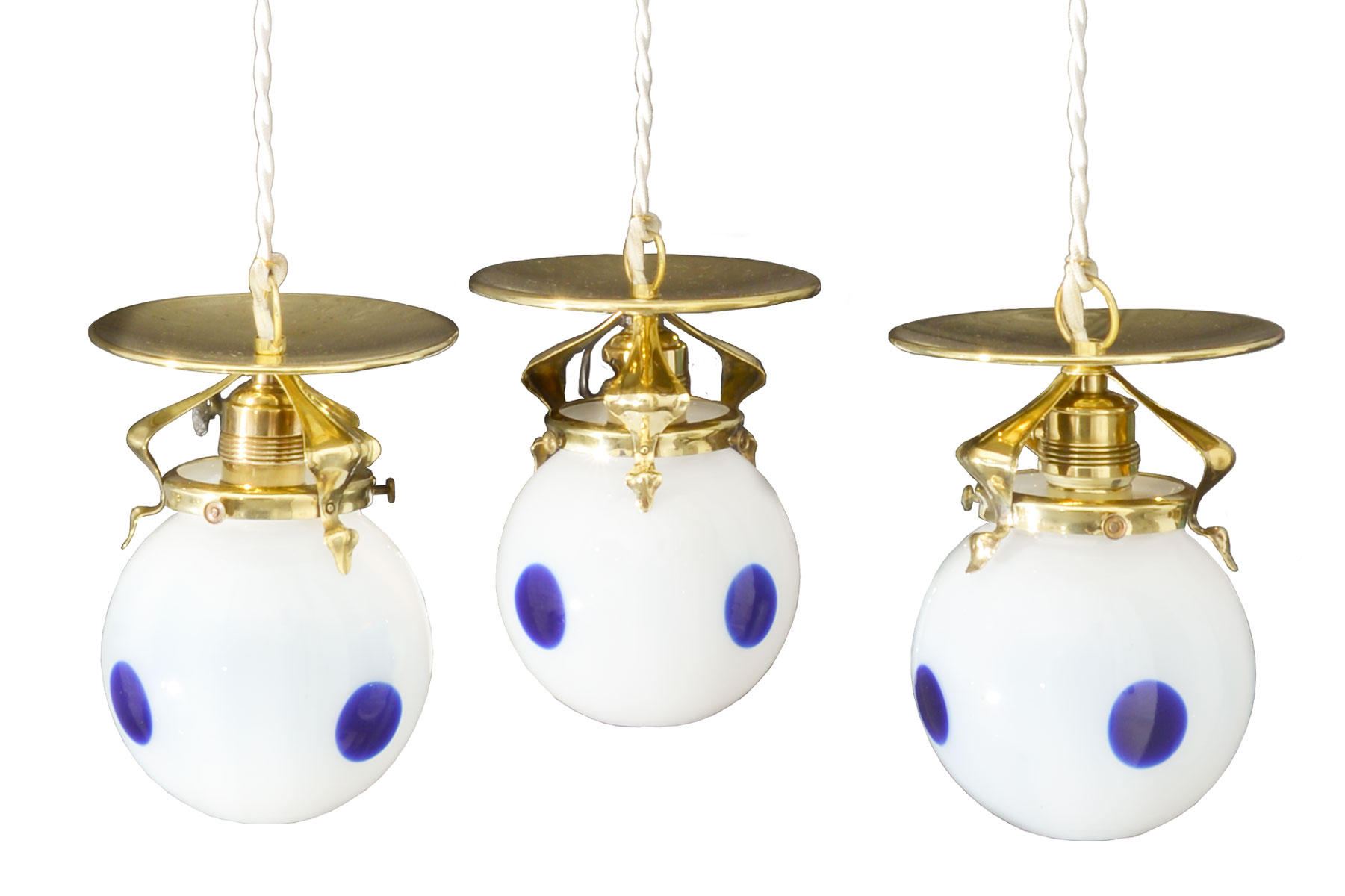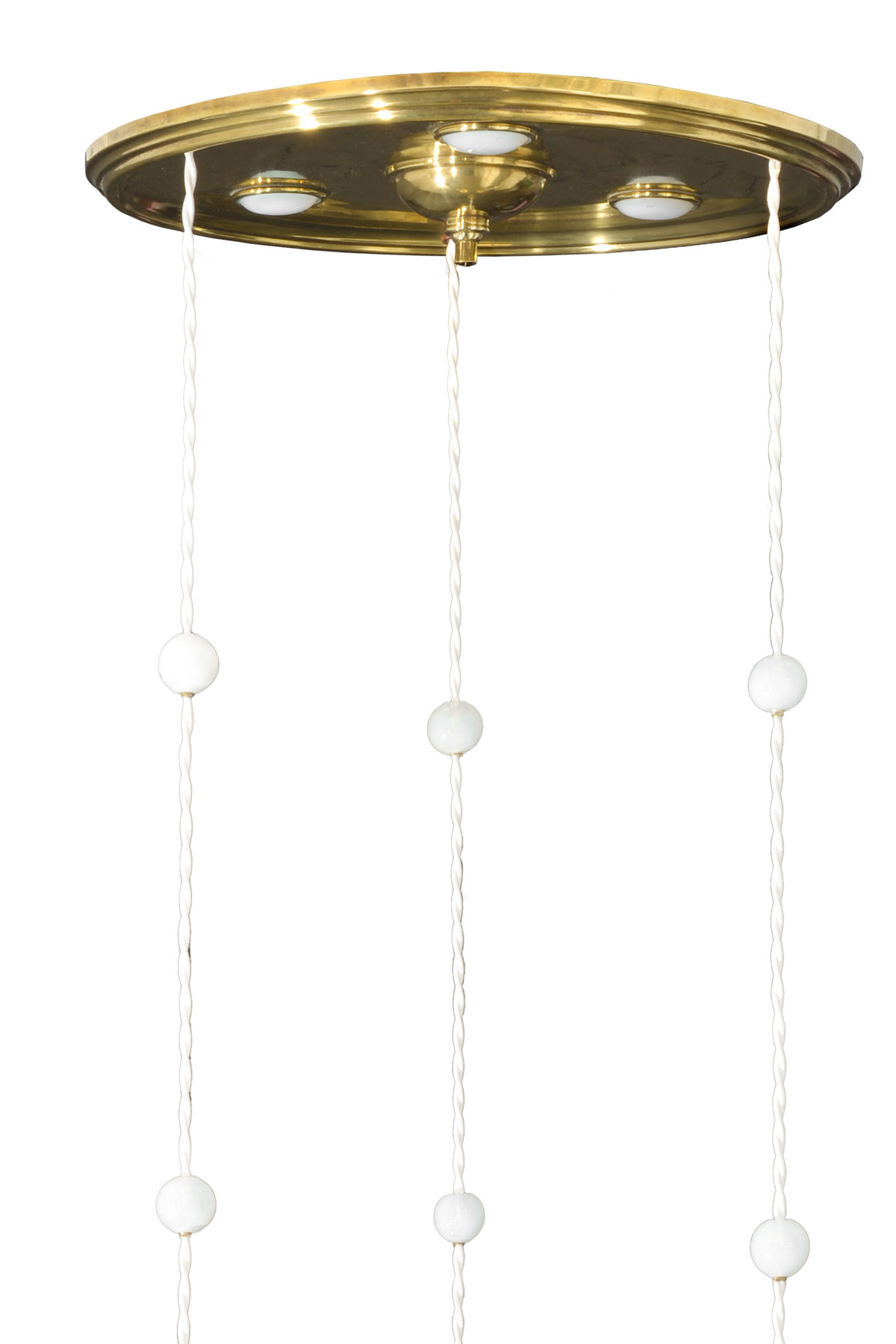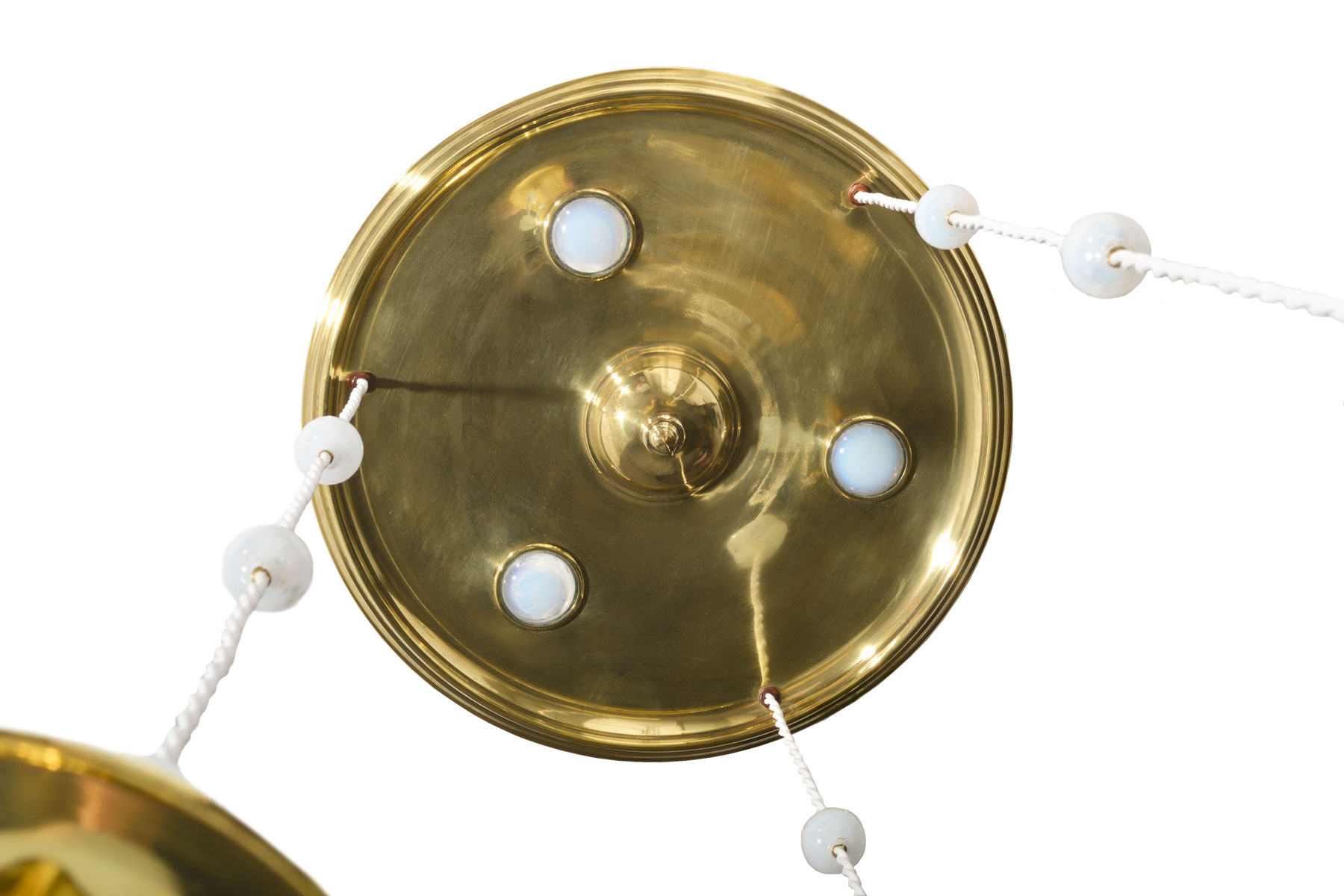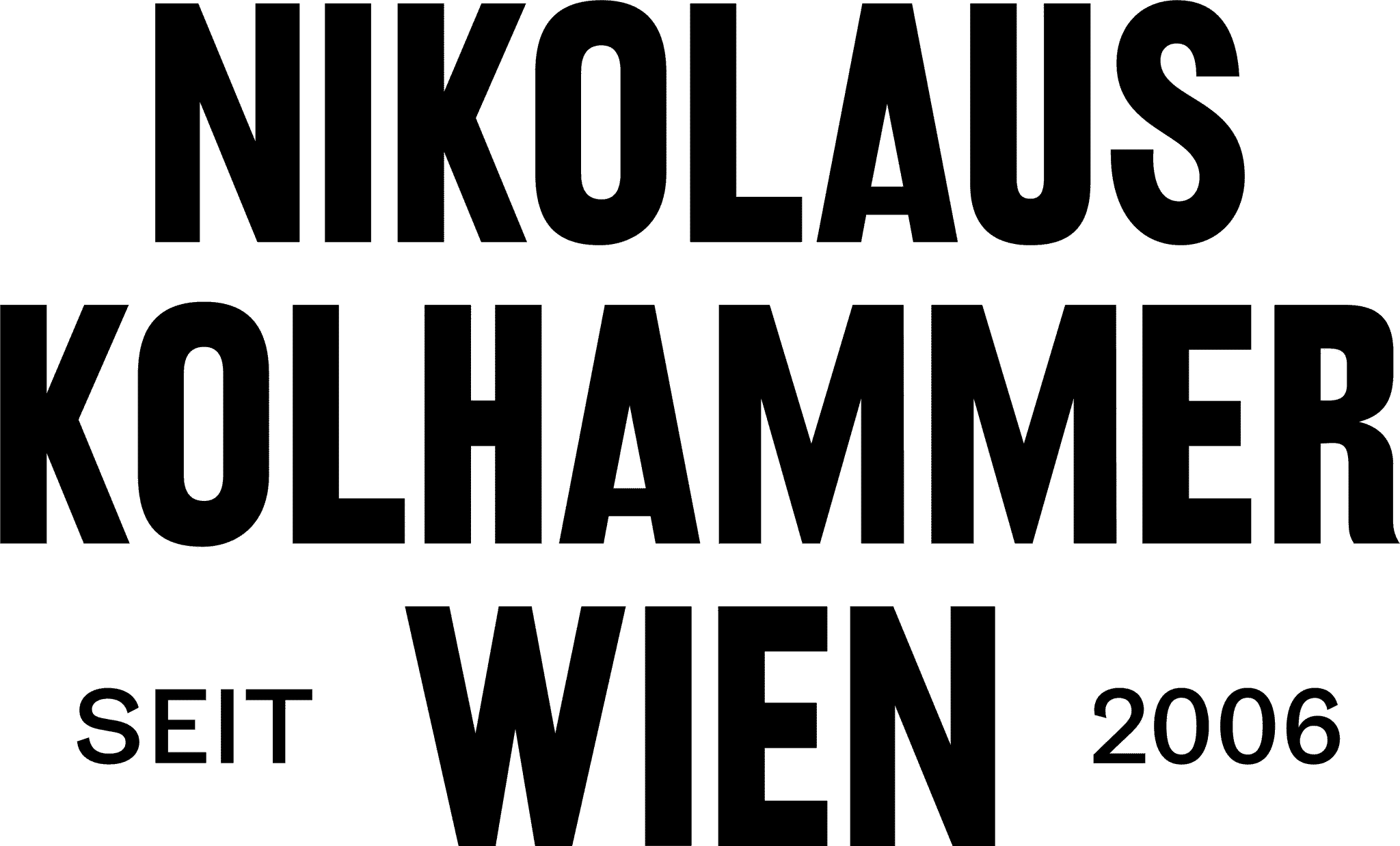Pendant lamp Koloman Moser ca. 1901
Pendant lamp with Loetz lampshades, design Koloman Moser for E. Bakalowits Söhne, Vienna, brass opal glass, Loetz lampshades, ca. 1901
Description
Before Koloman Moser became involved with the Wiener Werkstätte, he designed various decorative objects of all kinds for several Viennese companies – book covers, toys and even lighting fixtures. He started creating the latter as early as 1899 for the successful Viennese glass editor E. Bakalowits Söhne. In 1901, Moser designed several so-called “Penden”, which were lamps suspended from ceiling plates by cables, adorned with decorative elements. The size of the ceiling plate, the number of suspended lighting elements, and the decorative elements could be varied almost arbitrarily. There are ceiling plates with up to thirteen outlets. Metal discs, opal-colored spheres, or glass rods were attached to the cables. Koloman Moser himself used several four-armed Penden to furnish his own apartment.
Artist
As a jack-of-all-trades, Koloman Moser shaped the Viennese art scene around 1900 like hardly any other artist of his generation. Initially active as an illustrator and graphic designer, the versatile artist subsequently provided numerous designs for furniture, metal objects, fabrics, glass, etc. and was also artistically active as a painter. After studying at the Academy of Fine Arts and the Vienna School of Arts and Crafts, Moser became a founding member of the Vienna Secession in 1897. He designed the club magazine of this progressive artists' association and was responsible for its corporate design (catalogs, exhibition design). Together with Josef Hoffmann and Fritz Waerndorfer, Koloman Moser founded the Wiener Werkstatte in 1903. Until his resignation in 1907, he and Hoffmann were the artistic directors. They propagated the penetration of all areas of life with artistically designed arts and crafts in the sense of the Gesamtkunstwerk (total work of art). With numerous designs for the Wiener Werkstätte, he contributed significantly to the valorization of contemporary-modern arts and crafts in Vienna around 1900. From 1900 on, Moser taught graphic design at the Vienna School of Arts and Crafts and influenced and promoted a whole generation of artists and designers. Designs from the Koloman Moser School were executed by renowned manufactories, such as Backhausen, Bakalowits, Loetz, Portois & Fix, J. & J. Kohn, etc. In 1905, Moser resigned from the Secession together with the Klimt group and in 1908 took a prominent part in the widely acclaimed Kunstschau (art show) organized by the group in Vienna. In the years 1908 until his death in 1918, the focus of his artistic activity was on painting. Stylistically, the paintings of Ferdinand Hodler exerted a great influence on him. Although not celebrated as a painter during his lifetime, Nowadays, Moser's intensely colored, symbolist paintings are in great demand on the art market . Today, works by Koloman Moser can be found in the collections of important museums, such as the MAK and Leopold Museum in Vienna, or in international private collections, such as the Neue Galerie New York.
Inquiry
By submitting the inquiry form, you agree to the use of your data for this inquiry. Privacy Policy
